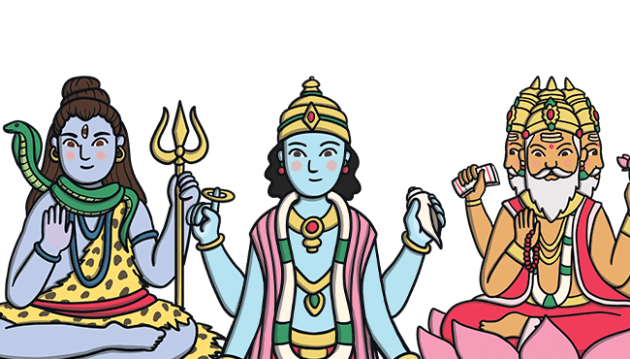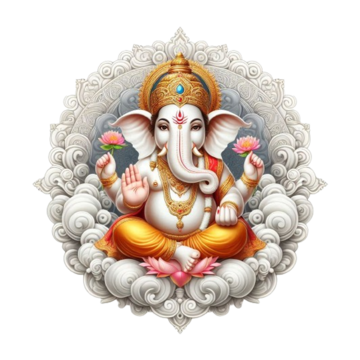
Hinduism, one of the world’s oldest and most diverse religions, is a tapestry woven with a myriad of beliefs, practices, and philosophies that have evolved over thousands of years. Rooted in the ancient civilization of the Indian subcontinent, Hinduism encompasses a rich and multifaceted tapestry of spirituality, mythology, and cultural heritage that continues to captivate the hearts and minds of millions worldwide. In this article, we embark on a journey to unravel the complexities of Hinduism, exploring its major beliefs, origin, and historical evolution.
Origins and Historical Evolution:
The origins of Hinduism can be traced back to the ancient civilization of the Indian subcontinent, where it gradually evolved over thousands of years through the amalgamation of diverse cultural, religious, and philosophical traditions. Unlike other major world religions, Hinduism does not have a single founder or a specific point of origin but rather emerged organically from the collective wisdom and spiritual insights of ancient sages, seers, and rishis who delved into the mysteries of existence.
The roots of Hinduism can be found in the ancient scriptures known as the Vedas, which are considered to be the oldest religious texts in the world. These sacred texts, composed in Sanskrit, contain hymns, rituals, and philosophical insights that form the foundation of Hindu religious thought. Over time, Hinduism underwent significant transformations, incorporating elements from various religious traditions, including Buddhism, Jainism, and indigenous folk beliefs, as well as influences from foreign invasions and migrations.
Major Beliefs and Philosophical Traditions:
At its core, Hinduism is a diverse and multifaceted religious tradition that encompasses a wide range of beliefs, practices, and philosophical schools of thought. One of the central tenets of Hinduism is the concept of dharma, which refers to the moral and ethical duties prescribed for individuals based on their social, familial, and occupational roles. Dharma is considered the foundation of righteous living and is upheld as the path to spiritual liberation (moksha).
Hinduism also embraces the concept of karma, the law of cause and effect, which asserts that every action has consequences that reverberate through multiple lifetimes. According to Hindu belief, individuals accumulate karma through their thoughts, words, and deeds, which ultimately determine their destiny and the cycle of birth, death, and rebirth (samsara). The goal of human life, according to Hinduism, is to break free from the cycle of samsara and attain liberation (moksha) by realizing one’s true identity as the eternal soul (atman) and merging with the divine (Brahman).
In addition to dharma and karma, Hinduism encompasses a diverse array of philosophical schools of thought, collectively known as darshanas, which offer different perspectives on the nature of reality, the purpose of life, and the path to spiritual enlightenment. These include Vedanta, which emphasizes the non-dual nature of reality and the identity of the individual soul with the Supreme; Yoga, which advocates spiritual discipline and self-realization through meditation and self-inquiry; Samkhya, which explores the dualistic nature of creation and the interplay of purusha (consciousness) and prakriti (matter); and Nyaya, which focuses on logic, reasoning, and epistemology.
Major Deities and Sacred Texts:
Hinduism is characterized by a rich pantheon of deities, each representing different aspects of the divine and the natural world. Among the most revered deities are Brahma, the creator; Vishnu, the preserver; and Shiva, the destroyer. These three deities form the divine trinity known as the Trimurti, which represents the cyclical nature of creation, preservation, and dissolution.
Other prominent deities in Hinduism include Devi (the goddess), who embodies the feminine aspect of the divine and is worshipped in various forms such as Durga, Lakshmi, and Saraswati; Ganesh, the elephant-headed god of wisdom and remover of obstacles; and Hanuman, the monkey god known for his unwavering devotion to Lord Rama.
The sacred texts of Hinduism, known as the Vedas, form the foundation of Hindu religious and philosophical thought. These ancient scriptures consist of four main collections—the Rigveda, Samaveda, Yajurveda, and Atharvaveda—and contain hymns, rituals, prayers, and philosophical insights. In addition to the Vedas, Hinduism is also enriched by a vast corpus of scriptures known as the Smritis and Puranas, which include epic narratives such as the Mahabharata and the Ramayana, as well as philosophical treatises like the Upanishads and the Bhagavad Gita.
Rituals, Festivals, and Practices:
Hinduism encompasses a diverse array of rituals, festivals, and practices that vary widely based on regional, cultural, and sectarian differences. Rituals play a central role in Hindu worship and are performed to honor the divine, seek blessings, and promote spiritual well-being. These rituals range from simple daily acts of worship, such as offering prayers and performing puja (ritual worship) at home or in temples, to elaborate ceremonies and festivals that mark significant events in the Hindu calendar.
One of the most widely celebrated festivals in Hinduism is Diwali, the Festival of Lights, which symbolizes the victory of light over darkness and the triumph of good over evil. Other major festivals include Holi, the Festival of Colors, which celebrates the arrival of spring and the victory of devotion over ego; Navaratri, a nine-night festival dedicated to the worship of the goddess Durga; and Shivaratri, a night-long vigil in honor of Lord Shiva.
Conclusion:
In conclusion, Hinduism is a profound and multifaceted religious tradition that encompasses a rich tapestry of beliefs, practices, and philosophical insights. From its ancient origins in the Indian subcontinent to its enduring influence on global spirituality, Hinduism continues to inspire millions of devotees with its timeless wisdom, profound teachings, and boundless spirituality. As we delve deeper into the mysteries of Hinduism, we gain a greater appreciation for its rich heritage and profound insights into the nature of reality, the purpose of life, and the path to spiritual fulfillment.
Pandey Moorti Art in Jaipur, Moorti Manufacturer and Exporter
At Pandey Moorti Art, we merge divine craftsmanship with timeless grace. With a legacy spanning more than six decades, we have stood as the foremost destination for exquisite statues of gods and goddesses crafted in Makrana Marble. Our extensive collection features over 10,000 distinct styles of Hindu and Jain deity moortis, meticulously crafted by our team of skilled artisans. As the longest-standing manufacturer of Hindu and Jain deity moortis in Jaipur, we take immense pride in our heritage and expertise. Sculpted from pristine White Makrana Marble, our statues boast intricate details that encapsulate the essence of spirituality and devotion. Additionally, we offer Roman sculptures and marble handicrafts, perfect for modern household adornment and thoughtful gifting alike.



